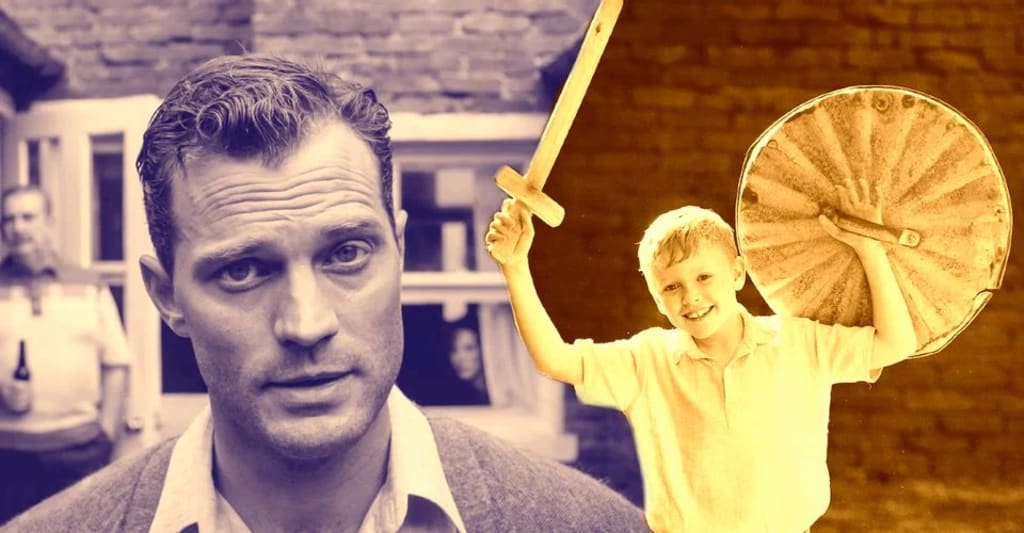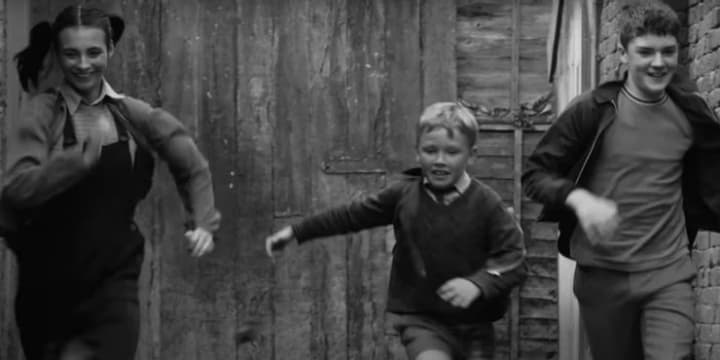Belfast True Story & Branagh's Real Life Inspirations Explained
Oscar favorite Belfast is based on director Kenneth Branagh's real childhood growing up in Northern Ireland at the start of the Troubles

The Oscar-named film Belfast has been commended for its feeling of realness, which easily falls into place as the movie depends on chief Kenneth Branagh's genuine experience. While not a severe life account, Belfast addresses Branagh's experience experiencing childhood in Northern Ireland, as well as the genuine history of the 1969 Riots and the subsequent period known as the Troubles. Understanding the genuine history behind Belfast assists with revealing insight into the issue looked by Buddy's loved ones.
Shot for the most part clearly, Belfast portrays the existence of youthful Buddy and his family as strict and political clash overwhelms the eponymous city wherein they live. The family is at last confronted with a decision of whether to remain in the city they are attached in or move to some place more quiet and prosperous. The film has gotten basic recognition and various Oscar designations, including Best Picture, where it is considered among the top picks to win.
Belfast is coordinated by Kenneth Branagh, a Shakespearean entertainer who has coordinated everything from a four-hour film transformation of Hamlet to American blockbusters like Thor. Belfast is his first film to be selected for Best Picture, and apparently the most acclaimed of his profession. Branagh's nearby unique interaction to the story could assist with clarifying why it has been a lot more fundamentally effective than the majority of his new executive endeavors.
How Kenneth Branagh's Life Inspired Belfast

Like Belfast's Buddy, Branagh experienced childhood in Belfast as the child of average Protestants. He would have been generally as old as Buddy is during the 1969 mobs, which happen toward the start of Belfast, and Branagh has spoken with regards to how his own youth encounters educated his portrayal regarding Belfast in the film. The scenes in Belfast that utilization tone to portray Buddy's charm with the universe of film could likewise portray Branagh's genuine motivation to be a producer.
Branagh's family was likewise confronted with the decision of remaining in a Belfast with a questionable future or moving ceaselessly. Like Buddy's family, Branagh's folks at last chose to move when he was nine, migrating to Reading in England. Branagh has spoken about being tormented in school due to his Irish articulation, and taking elocution examples to talk with a more customary enunciation.
Notwithstanding these likenesses, Branagh has said that the film isn't a self-portrayal, and the occasions in Buddy's day to day existence don't mirror his coordinated. The chief has said that he intended to catch a more broad encounter of the local area he experienced childhood in, utilizing conventional names like "Amigo" and "Dad" to make a feeling of comprehensiveness. Nonetheless, he has likewise depicted Belfast as his most private film, saying that "It had been twirling around throughout the previous 50 years, a kind of understanding that a particular sort of life that was so delineated for me at 9 years old where I totally comprehended what My identity was." So, while Belfast isn't completely a genuine story, it is vigorously motivated by Kenneth Branagh's genuine youth experience.
What Were The Riots At The Start of Belfast?
One of the most critical scenes in Belfast comes toward the start of the film where Buddy's rural youth play, complete with a Thor dream Easter egg, is hindered by a furious crowd using rocks, chains, and petroleum bombs. Branagh utilizes a 360-degree skillet to portray a feeling of tumult as the road drops into alarm around Buddy. This initial scene presents the principle struggle of Belfast, yet it is likewise founded on a genuine occasion.
The genuine story behind Belfast's initial scene is the August 1969 uproars. The uproars started on August 12 in Derry, as dissidents lobbying for more prominent privileges for Irish-Catholics conflicted with Protestant gatherings and the to a great extent Protestant police force. The confusion before long spread to Belfast and other Northern Irish urban areas. On August 14, the United Kingdom sent the British Army in to assist with subduing the uproars, a presence that would wind up enduring 37 years.
Albeit the uproars finished by August 18, they are today considered to be the start of the bigger battle commonly called The Troubles, which expanded long past Belfast's consummation. While there had been past fights and mobs in 1960s Northern Ireland, the 1969 Riots were by a wide margin the most harming. They finished in 8 individuals dead, north of 750 harmed, and more than 150 homes obliterated, with Irish-Catholics experiencing most of the misfortunes. The two sides of the contention considered the uproars to be a sign of additional brutality to come, and shaped devoted local army gatherings like the Provisional Irish Republican Army and Ulster Defense Association.
How Belfast Reflects The Troubles
Belfast doesn't endeavor to catch the sum of The Troubles, a decades-in length struggle which is excessively intricate to completely sum up in a solitary film or article. Numerous different movies, like chief Steve McQueen's Hunger, give an altogether different point of view. In short, in any case, the contention has its foundations in the much of the time merciless British colonization of Ireland from the sixteenth to twentieth century. In this period, numerous ethnically English individuals got comfortable the northernmost Irish territory of Ulster. At the point when Ireland accomplished autonomy through outfitted insurgency in 1922, Britain and the heads of the Irish freedom development arranged a settlement that kept Ulster a piece of the United Kingdom as Northern Ireland.
This concession was so disagreeable among Irish patriots that it caused a drawn out common conflict inside the recently made Republic, and keeps on being the subject of solid political pressure. In the Troubles, these pressures lead to savagery between the dominatingly Irish-Catholic Unionists, who needed Ulster to turn out to be important for the Republic of Ireland, and the transcendently Anglo-Protestant Loyalists, who needed Northern Ireland to stay in the United Kingdom, an ethnic gathering which incorporates Branagh and Belfast soundtrack vocalist Van Morrison. Rather than open struggle, underground volunteer army bunches on the two sides battled through bombings, posse viciousness, and terrorizing, with regular citizens frequently designated or trapped in the crossfire.
The Troubles basically reached a conclusion with the Good Friday arrangement in 1998, yet not before north of 3500 individuals lost their lives, including an expected 1840 regular folks. Northern Irish governmental issues and culture are still unequivocally split among Unionist and Loyalist gatherings.
Belfast just gives a fractional perspective on this contention, according to the viewpoint of a Protestant kid in the beginning of the Troubles. In any case, the end titles of the film, committing it to both "the individuals who remained" and "the people who left", propose that the decision Buddy's family confronted was exceptionally normal in the Belfast of this period. Almost certainly numerous youngsters attempted to escape into motion pictures, as Buddy does, and many guardians both Catholic and Protestant needed to settle on the decision to leave their homes for a more secure spot. While Belfast isn't by and large a genuine story, Branagh's own youth experience permits the film to address the issues looked by numerous families in Northern Ireland during the Troubles.





Comments
There are no comments for this story
Be the first to respond and start the conversation.